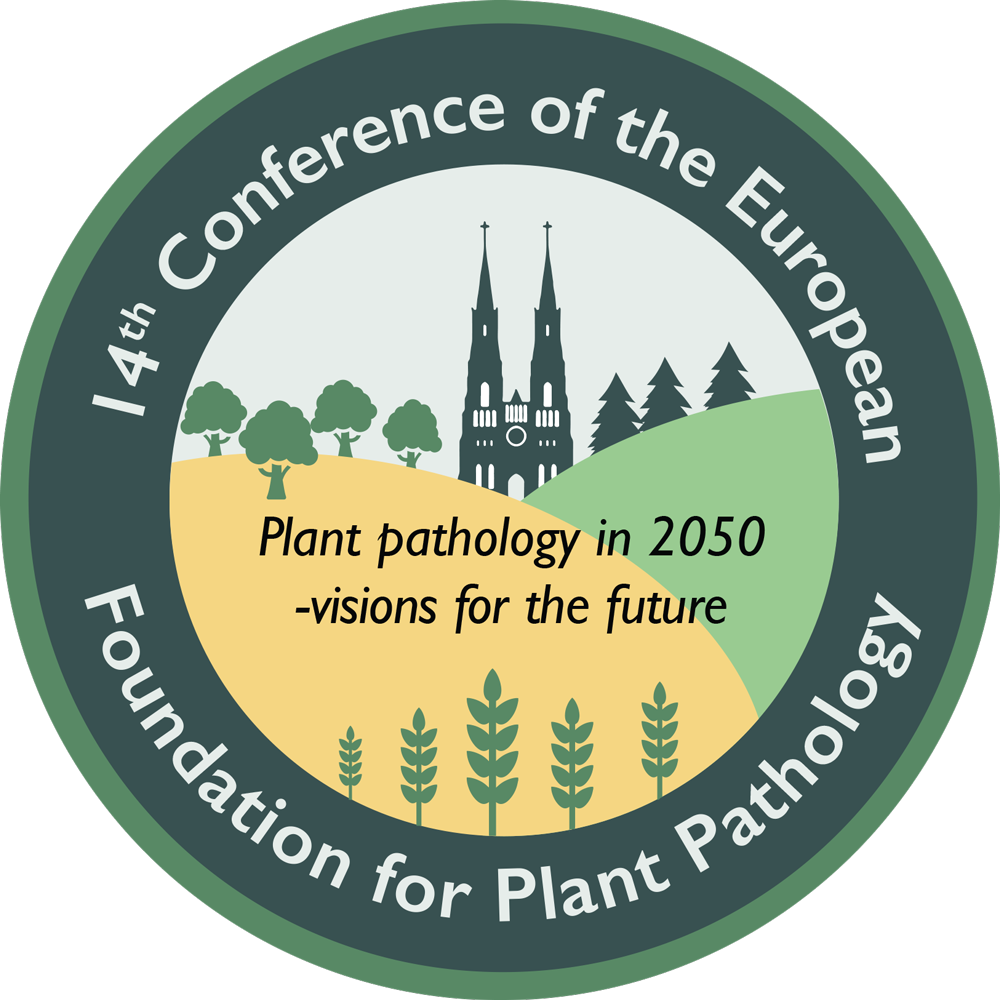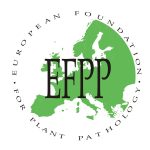Invited Speakers
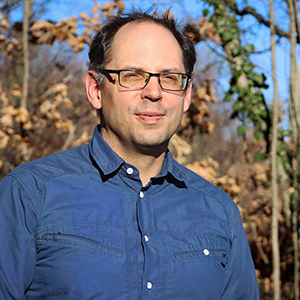
Daniel Croll
Professor of Evolutionary Genetics at the University of Neuchâtel, Switzerland
Daniel Croll is a Professor of Evolutionary Genetics and Director of the Institute of Biology at the University of Neuchâtel, Switzerland (Assistant Professor 2017-2022, Full Professor 2023-). He currently serves as the Director of the Institute of Biology (2024-) and the Western Switzerland Microbiology Doctoral Program (2022-). He completed his PhD in 2009 at the University of Lausanne, followed by a postdoctoral position at the ETH Zurich with Prof. Bruce A McDonald. Daniel received a Swiss National Science Foundation Advanced Postdoctoral Fellowship to join the lab of Prof. James Kronstad at the University of British Columbia in Vancouver from 2013-14. Daniel returned to Switzerland as a junior group leader and lecturer at the ETH Zurich from 2015-16. Daniel has a broad range of interests ranging from population genetics, microbiology, bioinformatics and conservation genomics.
Talk title
What genomes tell us about the emergence of crop pathogens

Eduardo Sáenz de Cabezón
Professor of Computer Languages and Systems at the University of La Rioja, Spain
Professor Eduardo Sáenz de Cabezón is active at the Department of Mathematics and Computer Science at the University of La Rioja, Spain. His research is focused on the field of Computational Algebra, where he has made significant contributions, including several articles on the subject of the homology of monomial ideals and their applications. He has developed the field of Algebraic Reliability in collaboration with Professor Henry Wynn of the London School of Economics and has researched in Algebraic Statistics and Mathematical Models for the integrated treatment of pests. He has led several national research projects and collaborated with interdisciplinary groups in biology, oceanography and research on education. In addition to his research, he disseminates mathematics in various ways, giving talks, lectures, workshops and courses on communication and mathematical dissemination. Professor Sáenz de Cabezón has been recognised for his contributions to popular science communication, having been awarded several prizes for his work in this area. He has published numerous books on the subject and has been working as an oral narrator since 1992, having performed various shows in Spain. Since 2013, he has been performing with the group of scientific monologists The Big Van Theory, with whom he has made more than 200 performances and TED talks.
Talk title
Al tools in plant pathology: Risks and opportunities

Antonio Di Pietro
Professor of Genetics, University of Córdoba, Spain
Antonio Di Pietro received his PhD at the University of Basel, Switzerland and obtained a Swiss National Science Foundation Postdoctoral Fellowship to work in the lab of Gary Harman at Cornell University, USA. He then joined the Department of Genetics at the University of Córdoba with a Marie Curie Individual Fellowship. He was a visiting scientist at Novozymes Biotech in Davis, CA, before being awarded a Ramon y Cajal tenure-track Junior Professorship from the Spanish Ministry of Science and Innovation in 2001. Since 2010, he has been a Full Professor of Genetics at the University of Córdoba. Antonio has coordinated and participated in several EU Marie Curie Training Networks. In 2017, he was elected Fellow of the American Academy of Microbiology. Antonio’s research interests are in fungal biology and pathology with a focus on the genetic and cellular mechanisms of adaptation and interaction with the host and the environment.
Talk title
Transposons drive environmental adaptation in a clonally evolving fungal pathogen
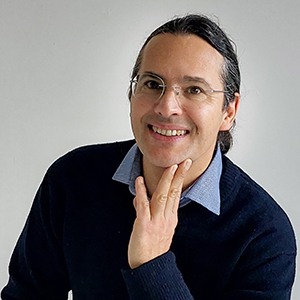
Armin Djamei
Professor of Plant Pathology at the University of Bonn, Germany
Armin Djamei is currently Professor of Plant Pathology at the University of Bonn, Germany. His research career has been characterised by the study of plant-microbe interactions, with a particular focus on biotrophic fungi and their effectors, in particular studies of effectors from the fungus Ustilago maydis and how they manipulate plant defences and signalling pathways to promote infection. Prof Djamei’s research focus on effectors and their role in manipulating plant signalling pathways has paved the way for new insights into plant pathology. Prof Djamei has held several senior positions at prominent institutions such as the Leibniz Institute IPK Gatersleben and the Gregor Mendel Institute of Molecular Plant Biology in Vienna.
Talk title
A Route to Leaf Galls

Malin Elfstrand
Professor in Forest Pathology at the Swedish University of Agricultural Sciences (SLU), Sweden
Prof. Malin Elfstrand is Professor in Forest Pathology at SLU, Uppsala. After completing an MSc in biology at Uppsala University, she received a PhD in forest tree cell and molecular biology at SLU, in 2001. After a postdoctoral stay at the University of Basel in Switzerland, she returned to SLU, where she has been active at the Department of Forest Mycology and Plant Pathology. Malin Elfstrand’s research focuses on forest trees and molecular and genetic knowledge of disease resistance to prevent diseases on forest trees and increase forest health.
Talk title
Tree resistance breeding for forest health in a changing world

Dilantha Fernando
Professor, plant pathologist, and Dean of Studies at the Department of Plant Science, University of Manitoba, Canada.
Dr. Dilantha Fernando, Department of Plant Science, is a professor, plant pathologist, and Dean of Studies at the University of Manitoba. Dilantha is an internationally renowned host-pathogen interaction (i.e., canola-blackleg, canola-Verticillium, canola-Sclerotinia, wheat-fusarium head blight, wheat-bacterial leaf streak (BLS), barley-FHB and barley-BLS) researcher (9878 citations; 53 H-Index; 154 i-10-Index; and 213 peer-reviewed publications). Prof. Fernando’s core research area is sustainable agricultural systems and climate resilience through environmentally friendly disease management practices such as resistance breeding with genetic traits, understanding R-gene/avirulence gene interactions, biological control, microbiomes, AI, and PGPR research. Dilantha studies the host-pathogen interaction at the field and molecular level using traditional and advanced (omics) methods.
Show more
Dilantha has been associated with naming R-genes in canola in Canada, introducing a new disease management strategy in Canada. Dilantha has trained 16 PhD and 17 Masters students who have graduated and found excellent employment in academia, industry, and government research institutions. Dilantha is a frequent keynote and plenary speaker at conferences and grower meetings and sits on several boards nationally and internationally. In 2024, Dilantha was named a Fellow of the Canadian Phytopathological Society (CPS) and received the Lifetime Research Excellence Award from the Asian PGPR Society in the same year. In 2023, Dilantha received the highest honor, the Lifetime Achievement Award for Excellence in Agricultural and Environmental Sustainability. In 2022, Dilantha was named a Fellow of the Asian PGPR Society. In 2021, Dilantha received the Merit Award for Excellence in Research and Service from the University of Manitoba. In 2020, Dilantha received the highest award for research excellence, the 2020 CPS Outstanding Research Scientist Award. In 2019, Dilantha was named a Fellow of the American Phytopathological Society (APS), USA. Also, in 2019, Dilantha received the highest award for excellence in research on plant growth-promoting rhizobacteria (PGPR). Dilantha is the founding editor-in-chief of Plants (MDPI) and sits on several other editorial boards worldwide. In January 2023, Dilantha was appointed as Editor-in-Chief of Plant Pathology, the flagship journal of the British Society of Plant Pathology (BSPP). Dilantha has been successful in receiving research funds from various groups. The total research funding he has received is $ 47 million. Dilantha has co-developed 37 canola/HEAR cultivars, bringing prestige and royalty funds to the University of Manitoba.
Talk title
Success story in Canadian blackleg disease management in canola: Does Verticillium longisporum, threaten this success

Sarah Gurr
Chair in Food Security at Exeter University, UK
Professor Sarah Gurr is the Chair in Food Security at Exeter University. Her research interests lie in the field of plant disease, with a particular focus on fungal infestations and their global movement and control. She obtained her PhD from Imperial College of Science, Technology and Medicine and was presented with the Huxley Medal. She held a postdoctoral fellowship at St Andrews University and subsequently became an independent Royal Society University Research Fellow. She was subsequently appointed as a Lecturer and Fellow at Somerville College, before being promoted to Reader and Professor at Oxford University. Prof. Gurr has served on numerous scientific committees and advisory boards, including being the first female President of the British Society of Plant Pathology (BSPP). Sarah held the Donders Chair (Honorary) at Utrecht University and is currently a Visiting Professor at the same institution. Professor Gurr has authored a significant number of publications, patents, and contributed to the UK Government Foresight report on “Biological Hazards.” In 2019, 2023, and 2024, she was listed among the most highly cited researchers worldwide (Clarivate Analytics).
Talk title
The global movement of fungal crop pathogens: perils, predictions and panacea?

Monica Höfte
Professor of Plant Pathology at Ghent University, Belgium
Monica Höfte is a professor at Ghent University and serves as the head of the Department of Plants and Crops. She is a plant pathologist with a broad expertise in both fundamental and applied aspects of plant-pathogen interactions. Her work focuses on the biological and integrated management of fungal and bacterial pathogens affecting a wide range of tropical and temperate crops. Her research group specializes in studying fungal and bacterial rice pathogens and their interactions with rice plants, as well as soilborne pathogens such as Pythium, Phytophthora, Fusarium, Verticillium, and Rhizoctonia. In the field of biocontrol, the current focus is on endophytic fungi and cyclic lipopeptides produced by Pseudomonas and Bacillus strains.
Talk title
Pathogens or biocontrol agents? The two faces of cyclic lipopeptide producing Pseudomonas strains
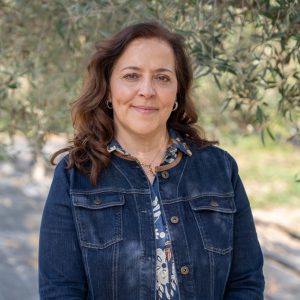
Blanca B. Landa
Research Professor at the Institute for Sustainable Agriculture, Spanish National Research Council, Córdoba, Spain
Blanca B. Landa is a Plant pathologist at the department of Crop Protection at the Institute for Sustainable Agriculture, Spanish National Research Council, Córdoba, Spain. Blanca has served on numerous scientific committees and advisory boards, including being the current president of the Spanish Plant Pathology Society (2022-). Blanca received the APS Fellow recognition from the American Phytopathological Society in 2024 for her world-class research, dedication to teaching and mentoring students, sustained service to phytopathology and agriculture in Europe, and, especially, her innovative research efforts to protect the Spanish olive industry from the quarantine plant pathogenic bacterium Xylella fastidiosa. Blanca is recognized internationally as a leader in fundamental and applied research on the ecology, epidemiology, biocontrol, and cultural management of both soilborne and vascular pathogens. She has led several national and international research projects and collaborated with interdisciplinary groups. She currently leads BeXyl Project, a Horizon Europe project involving 31 partners from 14 countries focused on the fight against X. fastidiosa.
Talk title
From Prevention to Control: The BeXyl Project’s Response to the Xylella fastidiosa Threat in Europé
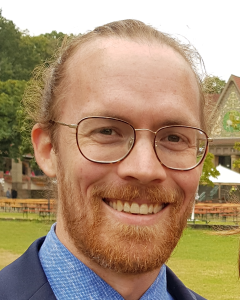
Derek Lundberg
Assistant professor and Wallenberg Academy Fellow at the Swedish University of Agricultural Sciences (SLU), Sweden
Derek Lundberg is an assistant professor and Wallenberg Academy Fellow at the Swedish University of Agricultural Sciences (SLU) in Uppsala. He studied root microbiomes for his Ph.D. at the University of North Carolina at Chapel Hill in the USA under the supervision of Jeff Dangl. He then moved to the lab of Detlef Weigel at the Max Planck Institute for Biology in Tübingen, Germany as a HFSP long term fellow, where he worked primarily on factors determining the assembly of leaf microbial communities. Since beginning his group in Uppsala in 2022, he has focused on mechanisms by which beneficial bacteria function and compete in complex conditions, leveraging methodological innovations, ‘omics, and culturing with the ultimate goal of improving the discovery of agricultural inoculants.
Talk title
Context, climate, and control of plant colonization by beneficial bacteria
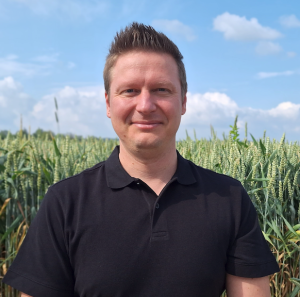
Thorsten Langner
ERC Research Group Leader at the Max Planck Institute for Biology, Germany
Thorsten Langner is since 2023 ERC Research Group Leader at the Max Planck Institute for Biology, Tuebingen, in Germany. His research focus plant pathogens and their constant coevolutionary conflict with their hosts. Selective forces imposed by the host plants have shaped the pathogen genomes and left molecular signatures in virulence related proteins. He use a multidisciplinary approach, including comparative genomics, evolutionary biology, genetics, as well as biophysics and structural biology to dissect the mechanisms that facilitate chromosome-scale, structural genomic variation, and the impact of these variants on molecular plant-pathogen coevolution. Ultimately, Dr. Lagner and his group aim to exploit these fundamental insights to inform pathogen surveillance and disease resistance engineering against the cereal blast fungus Magnaporthe oryzae.
Talk title
From lesions to lessons: The past, present and future of filamentous plant pathogen genomics
![Tatsuya Nobori IMG_8332[25] Tatsuya Nobori](https://www.efpp2025.com/wp-content/uploads/sites/42/2024/12/Tatsuya-Nobori-IMG_833225_resized_.jpg)
Tatsuya Nobori
Group Leader at the Sainsbury Laboratory (TSL), UK
Tatsuya Nobori is a Group Leader at The Sainsbury Laboratory (TSL) in Norwich, UK. After completing his Ph.D. at the Max Planck Institute for Plant Breeding Research (Cologne, Germany) in 2019, he conducted postdoctoral research at the Salk Institute (San Diego) as a Human Frontier Science Program Long-term Fellow before joining TSL in 2024. His lab explores the molecular and spatiotemporal dynamics of individual cells comprising the holobiont–the collective entity of the host and surrounding microbes–by developing and integrating new genomics and imaging technologies tailored to study plant-microbe interactions.
Talk title
Single-cell and spatial dissection of plant-pathogen interactions
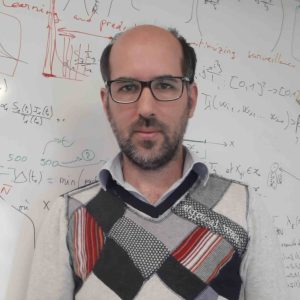
Samuel Soubeyrand
Senior researcher at INRAE’s Biostatistics and Spatial Processes (BioSP) unit, France
Dr. Samuel Soubeyrand is a senior researcher at INRAE’s Biostatistics and Spatial Processes (BioSP) unit in Avignon, France. In 2021, he became Deputy Head of the Plant Health and Environment (SPE) division of INRAE and joined the steering committee of the French platform for plant health epidemiosurveillance (Plateforme ESV). Dr. Soubeyrand’s research focuses on statistics, data analysis, and spatio-temporal modeling, with applications in epidemiology and ecology. His expertise includes spatial point processes, mechanistic-statistical modeling, outbreak reconstruction from genomic data, models for pathogen emergence, pathogen spread, and exposure-hazard. Throughout his career, Dr. Soubeyrand has developed several analytical tools and models, such as tropolink, a web application for exploring air-mass trajectories and the spatial connectivity they generate. Dr. Soubeyrand has been involved in numerous research projects, including the EU-funded BeXyl (2022-2026) about Xylella fastidiosa, as well as the ANR project BEYOND (2021-2026) about epidemiosurveillance. His work has essentially contributed to advance the understanding of pathogen dynamics.
Talk title
Leveraging heterogeneous surveillance data for modeling and inferring disease spread

Aiming Wang
Principal Research Scientist (Plant Genomics Virology) at the London Research and Development Centre, Agriculture and Agri-Food Canada, and Adjunct Professor of the Department of Biology, Western University, Canada
Dr. Aiming Wang completed his PhD in plant molecular biology and virology from the University of British Columbia in 1999. Currently, he is Principal Research Scientist (Plant Genomics Virology) at the London Research and Development Centre, Agriculture and Agri-Food Canada, and Adjunct Professor of the Department of Biology, Western University. Dr. Wang’s research program is directed to study the viral pathogens that cause devastating diseases on soybean, cereals, field horticultural crops, and greenhouse vegetables. His research has been concentrated on the elucidation of the viral infection process and molecular virus-plant interactions, and development of genetic resistance, cross-protection (biocontrol), and other novel antiviral technologies.
Show more
Dr. Wang has published over 150 peer-reviewed research papers, 35 book chapters and over 250 other articles and edited/co-edited seven books/special issues. He has trained 22 graduate students and 26 post-docs/visiting professors. Dr. Wang is the recipient of various awards, such as Queen Elisabeth II Diamond Jubilee Medal from Government of Canada, Golden Harvest Award from Agriculture and Agri-Food Canada, the Ruth Allen Award from the American Phytopathological Society and the Outstanding Research Award from the Canadian Phytopathological Society. Dr. Wang currently serves as an editor or editorial board member of scientific journals including PLoS Pathogens, Molecular Plant-Microbe Interactions, PhytoFrontier, Journal of Virology, Viruses, and Virology. He is also an ad hoc evaluator/reviewer for academic institutions and for many funding agencies such as NSF and USDA (USA), ANR (France), German Research Foundation, ISF (Israel), NNSF (China), BBSRC (UK), NSERC, CFIA and NFRF (Canada).
Talk title
Tomato Brown Rugose Fruit Virus in Canada: Progress in research and future prospects for disease control
Contact
Academic Conferences - administration of EFPP 2025
E-mail: efpp2025@akademikonferens.se
Phone: +46 18 67 10 03
Important dates
2024
Nov Abstract submission opens
Nov Registration opens
2025
21 Feb Abstract submission closes
Mar Abstract notification
31 Mar Early bird closes
May Final program
2-5 Jun Conference
